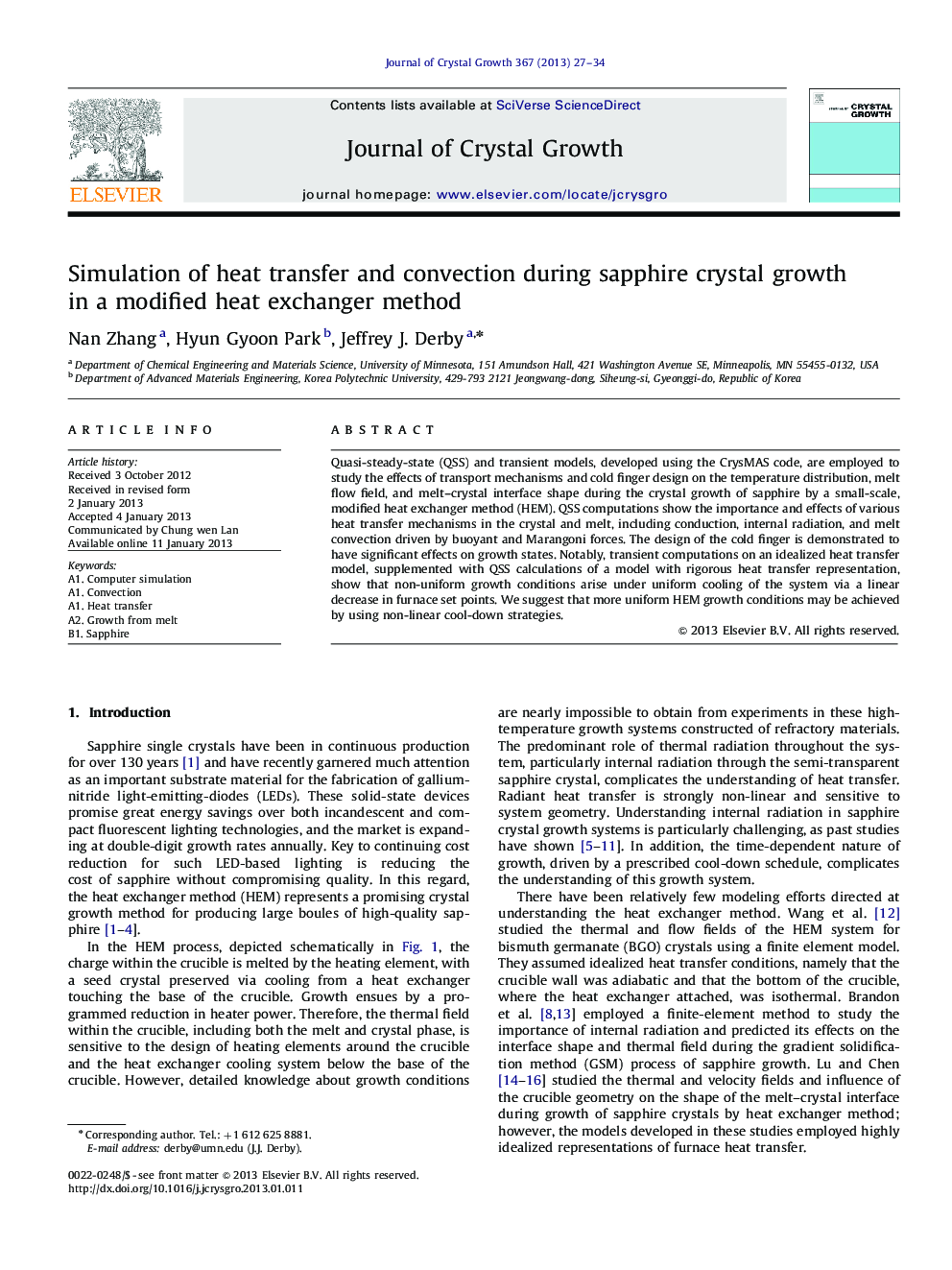| کد مقاله | کد نشریه | سال انتشار | مقاله انگلیسی | نسخه تمام متن |
|---|---|---|---|---|
| 1791206 | 1524462 | 2013 | 8 صفحه PDF | دانلود رایگان |

Quasi-steady-state (QSS) and transient models, developed using the CrysMAS code, are employed to study the effects of transport mechanisms and cold finger design on the temperature distribution, melt flow field, and melt–crystal interface shape during the crystal growth of sapphire by a small-scale, modified heat exchanger method (HEM). QSS computations show the importance and effects of various heat transfer mechanisms in the crystal and melt, including conduction, internal radiation, and melt convection driven by buoyant and Marangoni forces. The design of the cold finger is demonstrated to have significant effects on growth states. Notably, transient computations on an idealized heat transfer model, supplemented with QSS calculations of a model with rigorous heat transfer representation, show that non-uniform growth conditions arise under uniform cooling of the system via a linear decrease in furnace set points. We suggest that more uniform HEM growth conditions may be achieved by using non-linear cool-down strategies.
► A computational model is applied to the heat exchanger method for sapphire growth.
► New insights on heat transfer and system design are obtained.
► Non-uniform growth rates are predicted for a uniform cool-down in growth schedule.
Journal: Journal of Crystal Growth - Volume 367, 15 March 2013, Pages 27–34